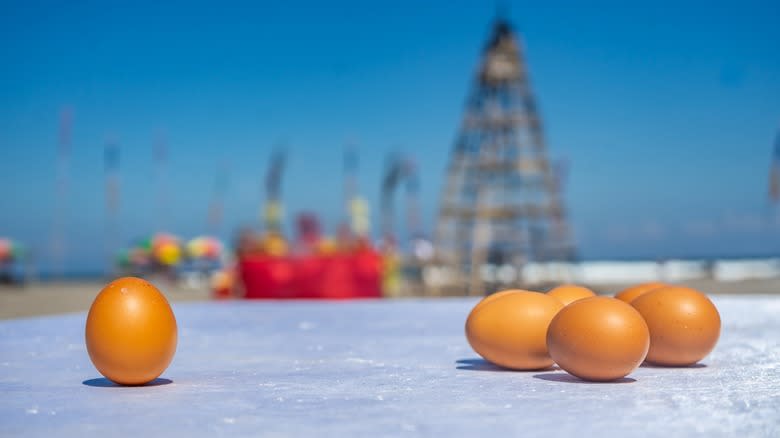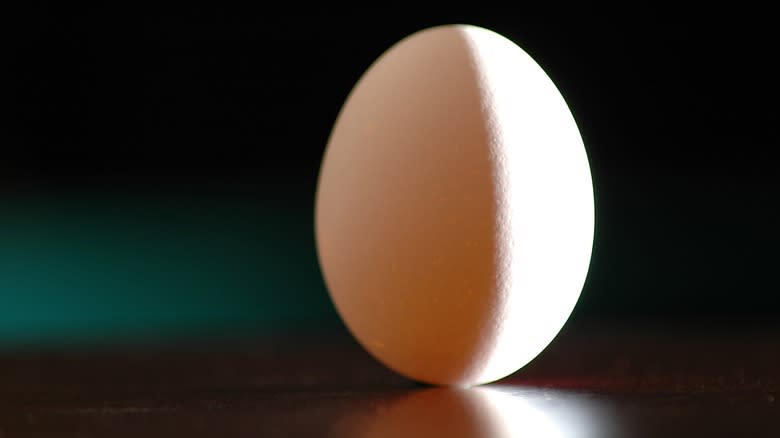Why It's Good Luck To Balance Eggs At Hong Kong's Dragon Boat Festival

Five days and five months after the Lunar New Year, Hong Kong celebrates the Dragon Boat Festival, as do Taiwan, mainland China, and other locations throughout the Chinese diaspora. The festival, as the name implies, revolves around races held in boats shaped like dragons, a tradition established to honor Chinese poet and national hero Qu Yuan, who drowned in a river upon being exiled from his native land some 2,000+ years ago. Rice dumplings called zòngzi are still eaten at the Dragon Boat Festival today to commemorate similar dumplings that were thrown in the water to keep the fish from eating his body, while the boats represent the vessels that were launched in an unsuccessful attempt to retrieve it for a proper burial.
Another part of the Dragon Boat festivities has nothing to do with dragons, dumplings, or poets. It involves people balancing eggs on top of sticks, on their heads, or, for an easier version of the game, on any hard surface such as a concrete floor. While egg balancing may sound like a silly stunt, it's meant to symbolize the harmonious balance of yin and yang, a symbol historically associated with signs of good fortune. The game is said to bring good luck (especially if done exactly at noon). So popular a sport is egg balancing that large-scale events are often held. At one such get-together, which was organized by Taiwan's Hsinchu City Government during the 2012 Dragon Boat Festival, a group of people set a world record for balancing 4,247 eggs.
Read more: 15 Mistakes Everyone Makes When Cooking Eggs
The Egg-Balancing Claim Is Based On Sketchy Science

So why egg-balancing on the fifth day of the fifth lunar month? Some have speculated that eggs are easier to balance at such a time due to the heightened gravitational force between Earth and the sun, but there doesn't seem to be any reason why these would act more effectively in May or June. In fact, back in 1945, Chinese academics, government officials, and a large number of foreign correspondents (as they were called back then) were caught up in a craze of balancing eggs on the first day of spring, which in the lunar calendar occurs at the end of the 12th month. Li Chun, as this day is called, is still associated with egg balancing in China today, while other parts of the world, too, have a tradition that the spring equinox (which is typically a month or so later in the Western world) is a time when eggs can more easily be made to stand on end.
An astronomer named Frank D. Ghigo, however, thoroughly debunked the equinox-egg balancing connection back in the mid-'80s. As the Associated Press (via Newspapers.com) reported in 1987, Ghigo determined that several factors impact an egg's balance-ability: its size and shape, the surface on which it's balanced, and even the mental state and experience level of the person attempting the balancing act. One thing that did not appear to affect matters, however, was the date on which the egg balancing act was performed.
Read the original article on Mashed.

